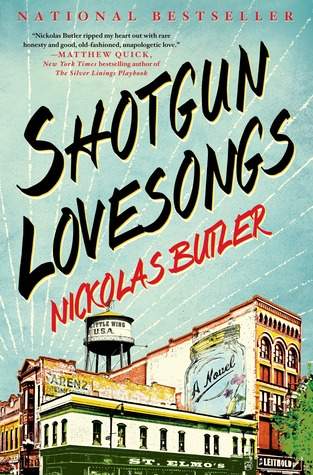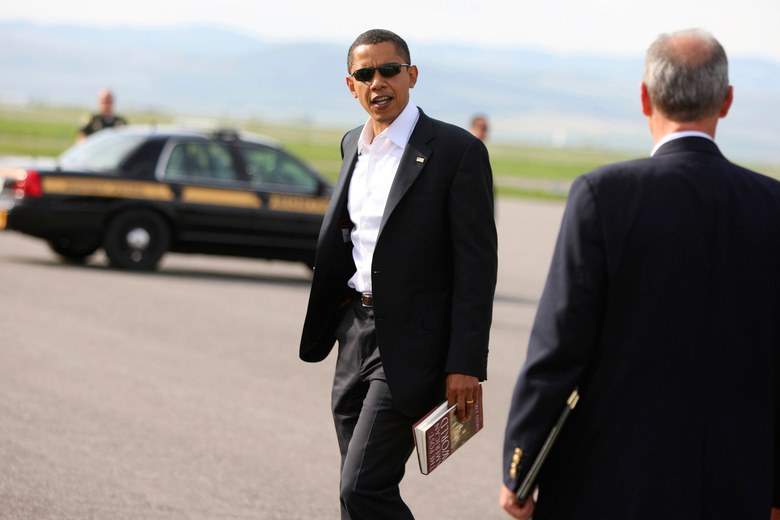Shotgun Lovesongs, by Nickolas Butler
It’s rare when you read a book set in the rural heartland and the characters feel grounded and real. Not quirky or bizarre or bruised or brutal – just an ordinary sort of real. It’s as if “real” cannot be interesting, that “real” cannot be beautiful. But in Shotgun Lovesongs, the yearning for that which would be considered unremarkable is what shines.
The book follows four friends, now in their early 30s, who grew up in tiny Little Wing, Wisconsin. Henry is a dairy farmer, carrying on the legacy of his father and his father before him; he has been married to Beth for nine years, and they have two children. Ronny is a free spirit, a dashing alcoholic who found a bit of fame on the rodeo circuit until a drunken curbside fall outside the VFW in Eau Claire resulted in a bashed skull which left him a bit simpler, a bit more vulnerable. Kip had left Little Wing to become a hot shot commodities trader in Chicago, but recently returned to renovate the abandoned, decaying old grain mill that figured so strongly in their childhood memories. And Lee – well, Lee went further than any of them.
Lee had become a superstar singer/songwriter, known for never selling out, for living in an old schoolhouse out in the country with a recording studio in the gymnasium, making the music he wanted to make. His mystique was already set by his humble beginnings with no music industry behind him; merely his own makeshift studio and the forced focus of a long, cold winter. He grew famous but he never lost himself; no matter where his career took him, he always came back to Little Wing.
(If that feels fabricated to you, check out the very real indie folk musician Justin Vernon, lead singer/main persona of the band, Bon Iver, who just happens to be a high school classmate of author Nickolas Butler.)
Then there is Beth, Henry’s wife. She is beautiful, sensible, devoted to a man and their simple way of life, a perfect partner to the solid farmer. She befriends Kip’s fish-out-of-water society wife, welcomes Ronny into the circle of her home and family even with his checkered past, offering him normalcy. With Lee, her husband’s best friend, she is the epitome of domestic solidity, despite their own buried past.
The men are reunited when Lee returns from touring in Australia to sing at Kip’s wedding; a favor that is less an offering than it is an assumption, mirroring the two’s somewhat prickly relationship. Lee brings a beautiful movie actress as his date, one for whom he actually has feelings, and then is upset when the paparazzi are alerted and invade his sacred stomping grounds. Just as the four friends are finally back together, it becomes clear that things will never be the same between them – and it also becomes clear that time doesn’t heal all wounds. Sometimes it only digs them deeper.
Relationships are at the center of Shotgun Lovesongs, between friends, between husbands and wives, between lovers; the tangential relationships of those who find themselves drawn into the pasts of others, of those pasts threatening the present, and always, always, the relationship of the self to home, to a sense of place that roots us and holds us even when we think we have moved on.
Admittedly, sometimes it does get to be a bit too much. Although each “chapter” in the book is written from the viewpoint of one of the five main characters, the narrative still sounds the same. Not the observations or the filters through which those observations are made, but the voice behind them – the same lilt, the same recitation of appreciation expressed in very similar musings on the past and its effects. And the cast of characters is very small, with names resurfacing as though there was only so much budget left over for extras. While demographics of a small town are necessarily limited, one would think in five shared lifetimes there would be a few more players woven into the story.
Yet those are minor drawbacks. The language, the feel, the atmosphere is lush in a very Midwestern way. The struggles the characters go through are genuine, believable, and their reactions are relatable to even the most settled of us. And even at its darkest, even when the options seem to sway between despair or abject acceptance, there is always a thread of hope that runs through this story: that no matter how bad the harvest, no matter how harsh the winter or how dry the summer, the seasons will turn again. There is always a chance that the future will afford some graciousness, that the bitterness of today will fade with the evening sun. That love, even if lost, still resonates. And that forgiveness still exists.
At least in small towns in Wisconsin.
—Sharon Browning

